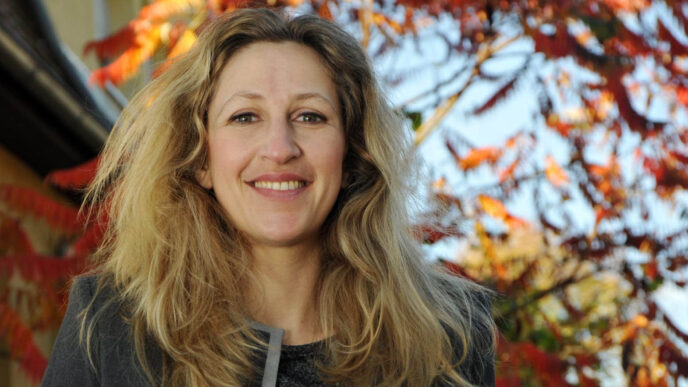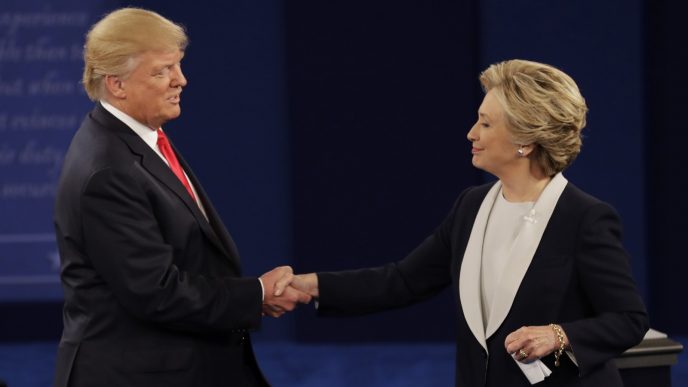
In order to understand the violence in cities across Israel in the last two weeks, one must take an in-depth look at the "non-liberal groups that drive violence” and at how liberal groups relate to them, says Dr. Yulia Elad Strenger, political psychologist at Bar Ilan University who specializes in conflicts, ideology and radicalization. Davar sat down with her for an in-depth analysis of what drives people, specifically Jews, to behave violently.
"The Israeli government and Israeli leaders have delegitimized Israeli Arabs over the years, which has greatly contributed to the rising tensions,” she explains. “But there are groups on both sides, with deep interests far beyond what Netanyahu does or does not do. The delegitimization of the Arabs and the strengthening of the far right by the government contributes to the story, but that's not the whole story.”

"Let us explain it to you, you are brainwashed"
Some say that economic hardship is one of the main causes of violence.
"I do not think that violence is the result of economic hardship. I do think, unequivocally, that liberal groups have contributed to this situation, in the sense that they are looking down on people on the margins of Israeli society. They say to these people: 'You do not really understand politics. Let us explain it to you, you are brainwashed.’”
How does it contribute to violence?
"The idea that people have been brainwashed contributed to the rise of populism. It’s also happening in Europe and the United States. The problem is not in the economic process itself, but in the reaction of the liberals to the plight of the people.
"In the U.S., they were told – 'You are imagining your distress. You are not really threatened by the Mexicans.’ And it’s true, the U.S. is not really threatened, but people feel they are being pushed to the margins. You can't come and tell them, 'This is not real, you're not really threatened.' This is one of Hillary Clinton's mistakes. A void was created, and people who are elites in their own right entered it. Trump said to people, 'We are with you.'

Psychologist Alfred Adler talks about how every person feels they need a place, and what happens when that place is taken away or threatened.
"True. And this place is not just a physical thing. It’s an identity. A sense of existential meaning. If something threatens my worldview and tells me that everything I believe in is not true, it is an existential threat. It is like taking my physical home. We are very strongly identified with our groups, worldviews, and affiliations. Symbolic threats, not only concrete ones, lead to devastating results."
And then violence occurs? Who is drawn to these directions?
"Every person has the potential to be violent, there is nothing special about these people. I do not like to give personal explanations as to which people are participating in the violence. There are a lot of contextual, environmental factors that ultimately give the feeling that you can do something really big right now."

The failure of the liberals
So liberalism’s failure to inspire contributes to violence?
"True. Illiberal ideologies are much more attractive, they provide comfort to basic human needs. People who have been pushed to the margins feel distressed. Illiberal ideologies address people who are in distress, whether it is economic distress or security distress, because then they want clear and unambiguous answers. They want black and white, us and them, 'who is with us and who is against us.' Liberal ideologies do not provide that answer."
And are liberals blind to that?
"It's not just blindness to reality. Every group has what is called 'naive realism.' It is the feeling or perception that what you believe in rests on facts or the truth, and whoever disagrees with you simply does not know the facts. And accordingly, if they knew them, they would agree with you. Every group sees its opponents that way, the liberals are not alone in this."
Why do liberal ideologies fail where illiberal perceptions succeed?
"Because it takes effort. You can't explain to people how nice it is to live in a heterogeneous society. It's a failure of liberals, who not only do not know how to market, but rather, just say 'trust us.' And that's all. They think if they just explain to people how tolerance and social diversity are better than conservatism, they will understand, but it misses the point that people need solutions for their distress.
"Telling a particular public that their reactions to distress, such as blaming minorities for problems, is brainwashing, even if it's true, misses the point. Liberals do not find an alternative way to comfort people and acknowledge their distress, and a vacuum of populism and illiberalism is created. Selling a threat is much easier than selling hope."
Isn't it better to deal with adversity instead of giving comfort?
"I'm not even talking about dealing with distress itself, I'm dealing with the mental narrative of acknowledging distress. It's not that iliberal ideologies are actually solving the issues that lead to distress. The question is, do you recognize people's distress and see them and hear them.
"The political right did not solve the issues that lead to the marginalization of groups of Jews, but it gave them a better narrative, someone to blame – Arabs, minorities, leftists, the judiciary, the media."
Is the disappointment now being expressed by liberal Jews about the violence of Israeli Arabs also an expression of the blindness you talked about?
"On both sides there is blindness, in the sense of naive realism. There is no uprising of Arabs against Jews. There are two million Arabs and seven million Jews and there are several hundred on each side involved in violence. I oppose the term 'civil war.' It is an unnecessary, dangerously incendiary framing.
"Some of those involved in violence do not have an extreme ideology at all. Even at the social justice protests in 2011, how many of those who took to the streets could say exactly why they were protesting? There is a social pressure. Not everyone who took to the streets had a cohesive worldview."
If it is not a matter of worldview, what makes people carry out such violent acts?
"It's not always ideological. Even in ISIS, many affiliates did not fully know the ideology of this organization. They join because something big is happening that gives them a sense of meaning, that they are part of some significant struggle. It is not necessarily an orderly process. What is happening here is not a clash of civilizations."
The justification for evil
"Everyone defines the opposite of good as evil," she says. "Violence serves both the 'good' and the 'bad' to advance people's goals. I strongly believe in the recognition that evil is also a part of me.
“Hannah Arendt was wrong about Adolf Eichmann (in her book Eichmann in Jerusalem: A Report on the Banality of Evil). The idea that evil is banal, which she never explicitly wrote about, has truth in it. After recognizing that we all have evil in us as well, one should take another step and recognize that there is not always a motivation for evil. We find ourselves doing bad things out of necessity, forces that are banal, not out of evil ideology.”
Still, people eventually find justification for the violence they engage in.
"In every society, we have justification for acts that are considered bad according to our internal value system. The justification stops the act from being evil, because it is in the name of a goal that for us is worthy. But the same can be said about groups that have conflicting goals, which in our eyes are unworthy.
"There's something called the basic attribution error. When we do something bad, we can explain that it's because of a certain situation and not because of our character, but when someone else does something bad, we attribute it to his personality. That's how it works in a conflict. Jews will see the justification for their actions more easily. Yet what Arabs do, we attribute to their character, to their culture. "
What do you mean?
"Some people say that Arab culture is a violent culture, that 'now it’s coming out.' It is a reaction that shocks me, but I understand it, because it is difficult for us to understand them. It is a way of relating towards the group that we are in conflict with. This attitude has a role to play; it protects us. Maintaining a positive image of ourselves and delegitimizing the opponent is something that helps us deal with a difficult situation.

"We are a very heterogeneous country. Despite the good intentions of the country, groups have a tendency to try to preserve a distinct and unique identity, and this happens especially when the groups are similar to each other. There are many similarities between us, Jews and Arabs. And that similarity is threatening.
"The tendency to differentiate is seen in a lot of studies. There are so many ‘tribes’ in Israel – Mizrahi Jews, Ashkenazi Jews, right-wingers, leftists, Jews, and Arabs. These identities matter, up until the moment when you want to buy a used car from someone and have to say who you're willing to buy from. All these divisions exist, and the harder you try to unite them around a shared narrative, the harder they try to differentiate.”






